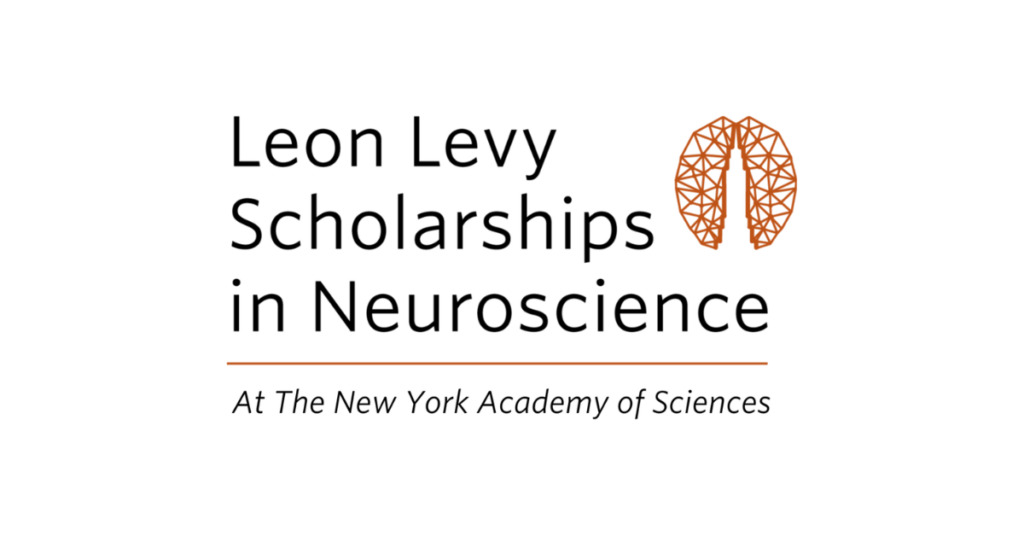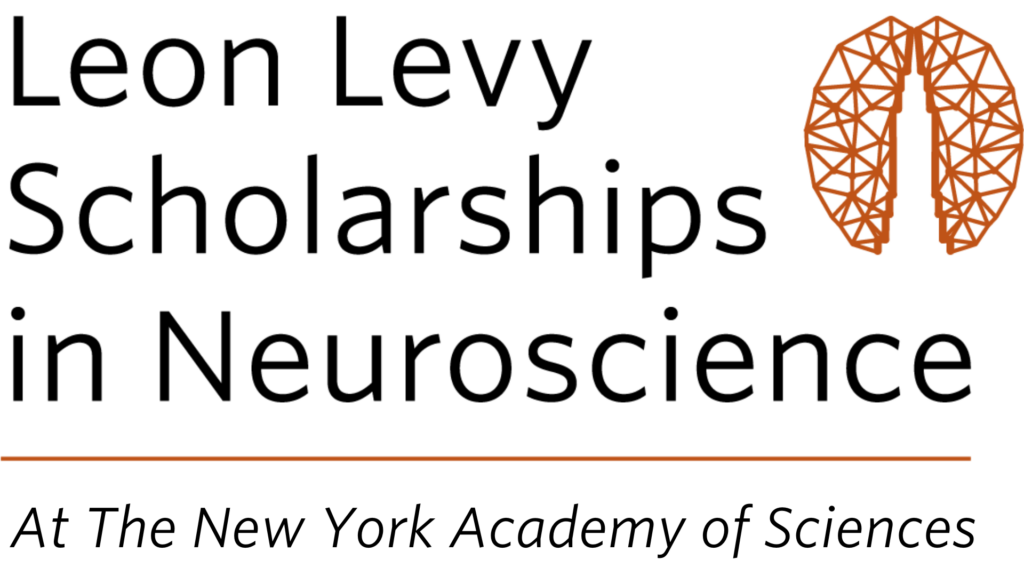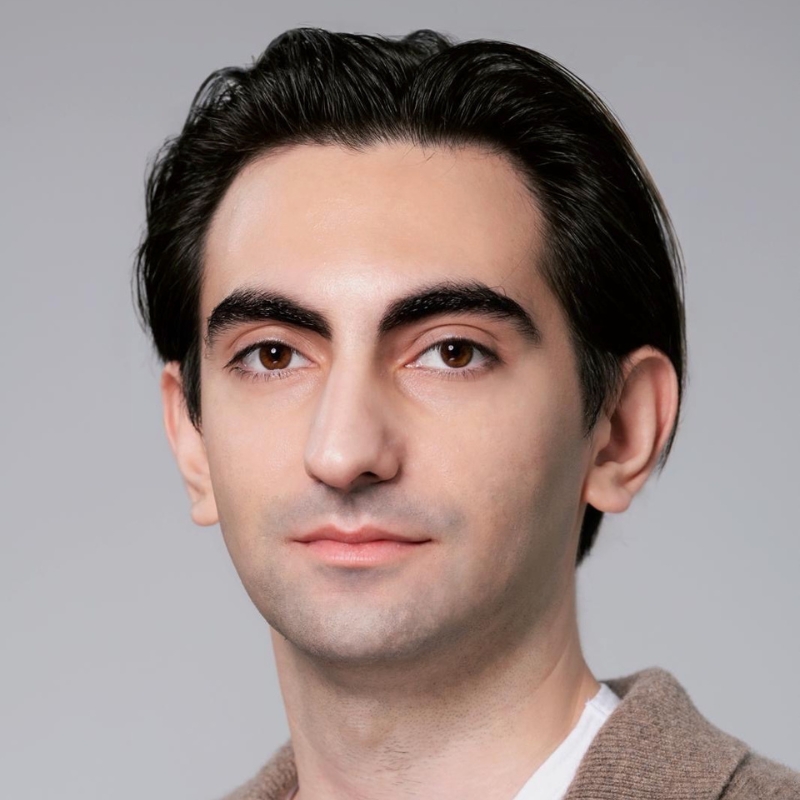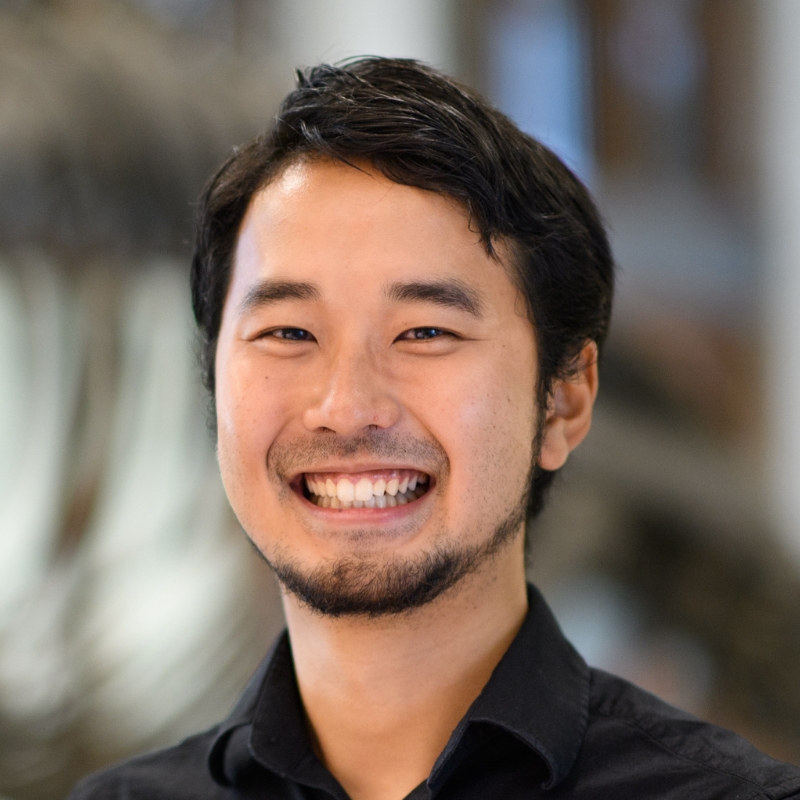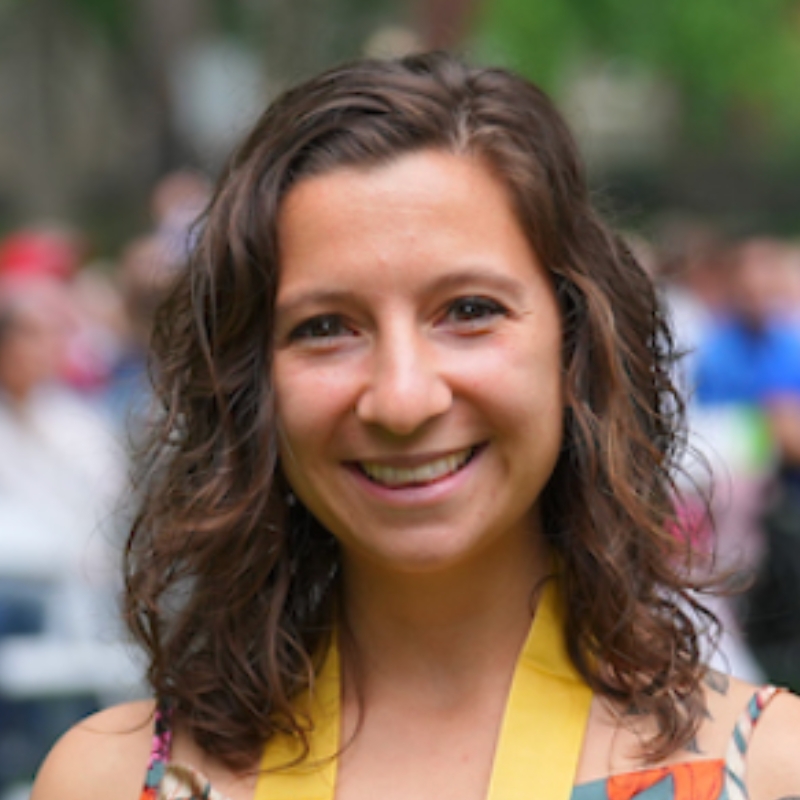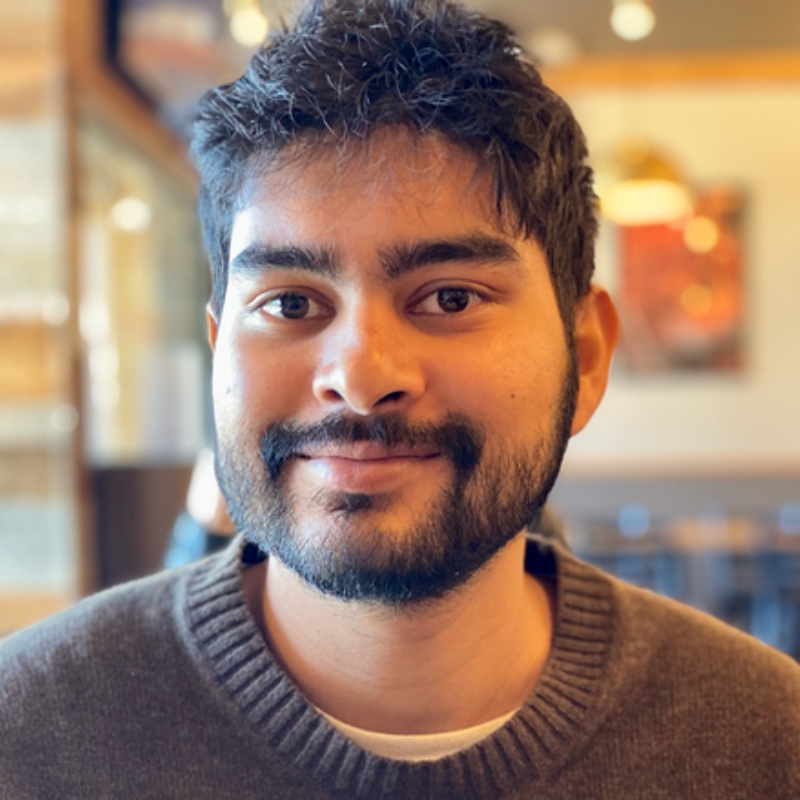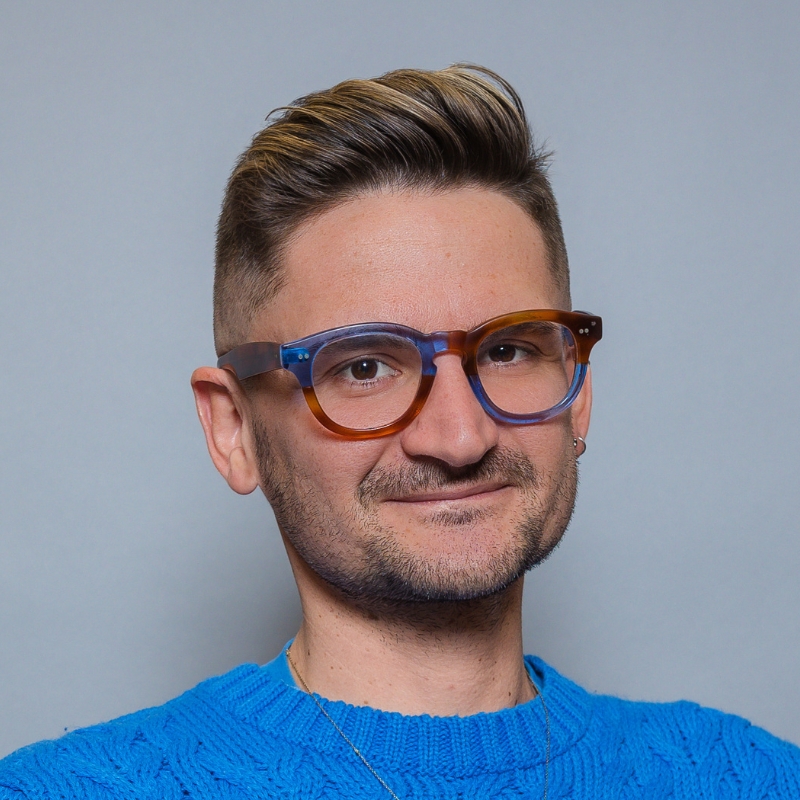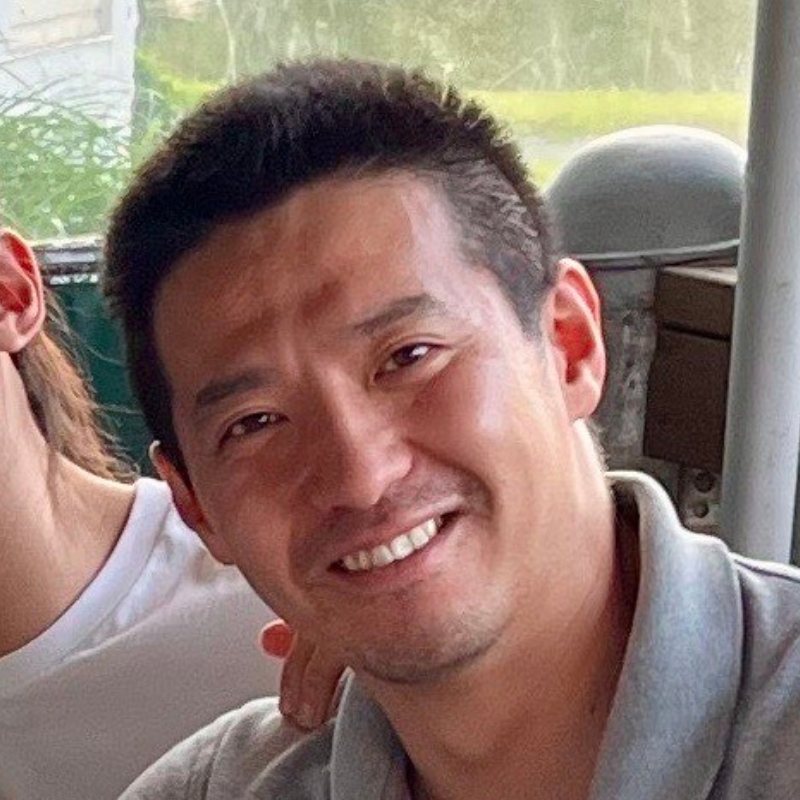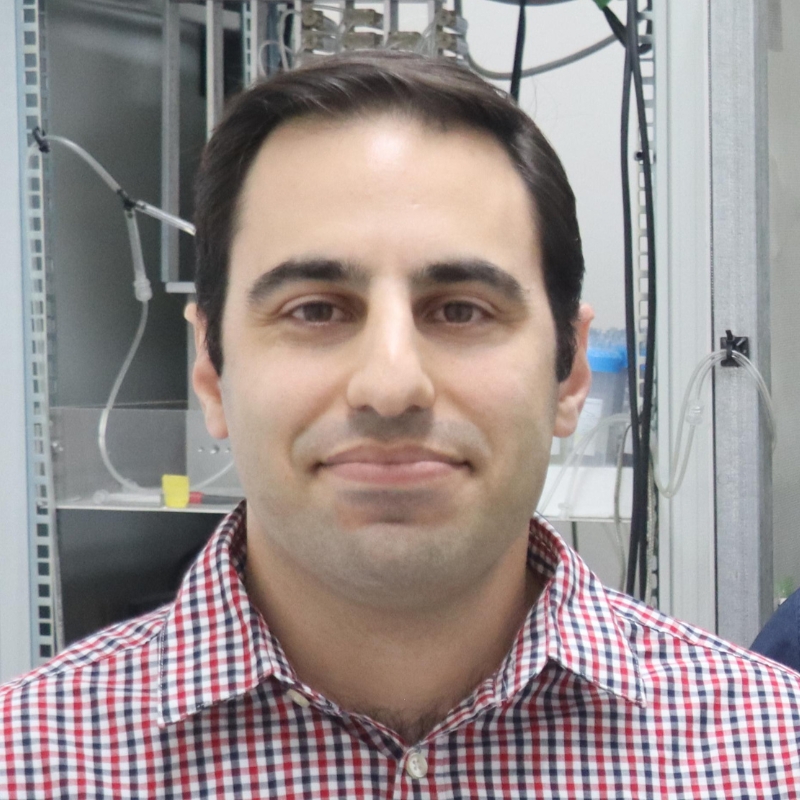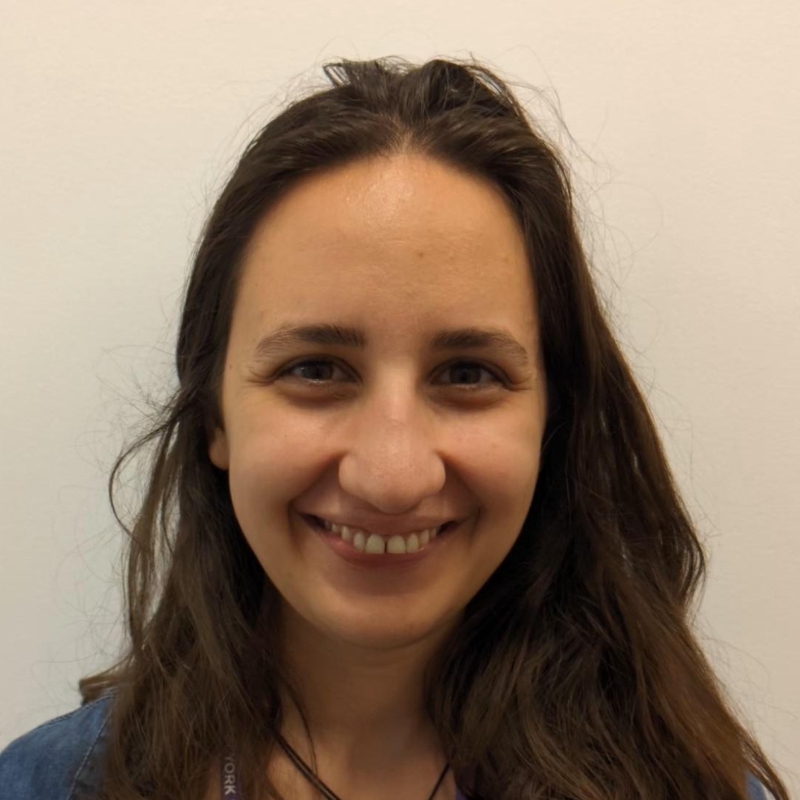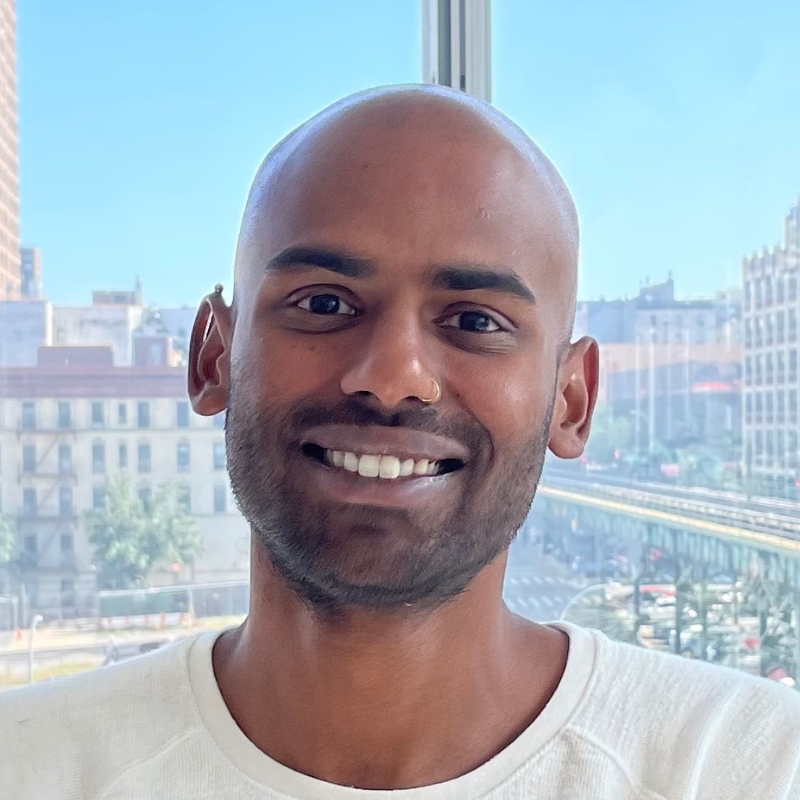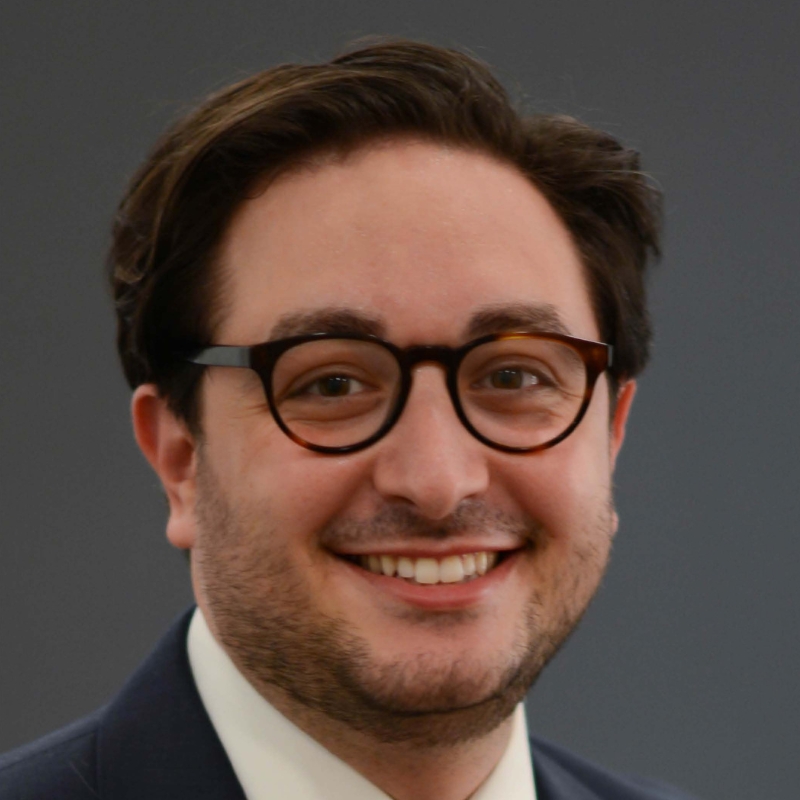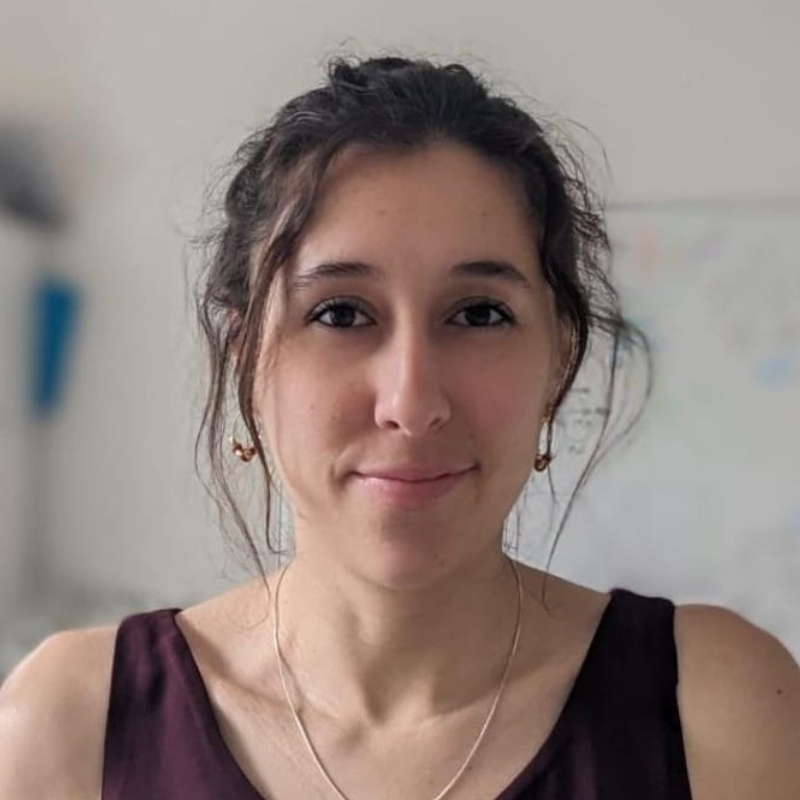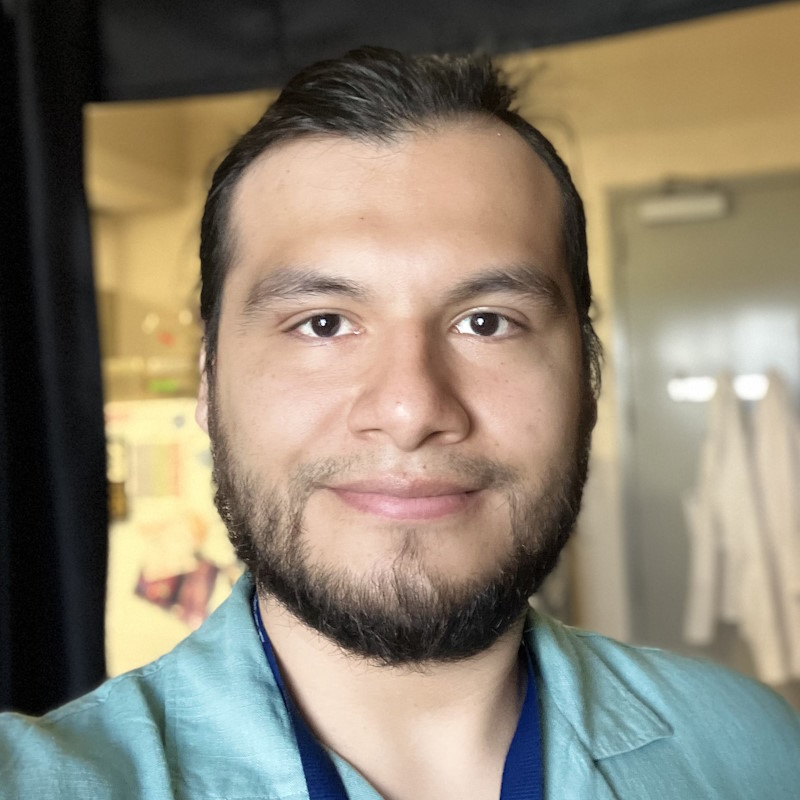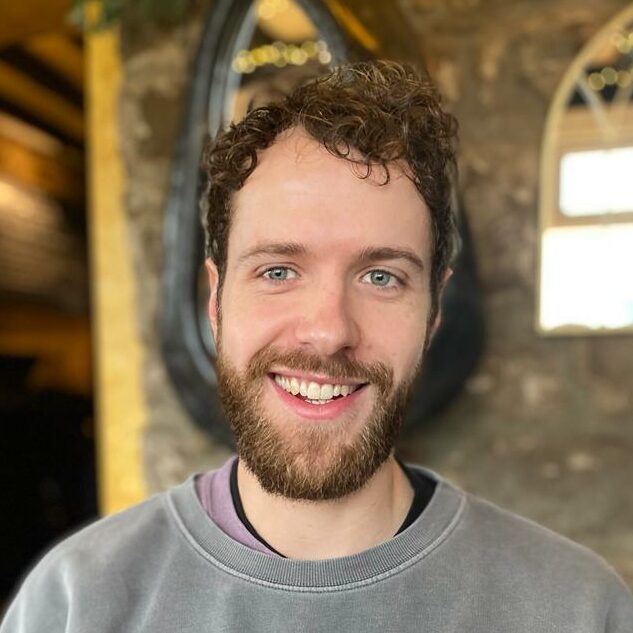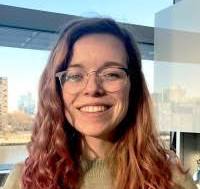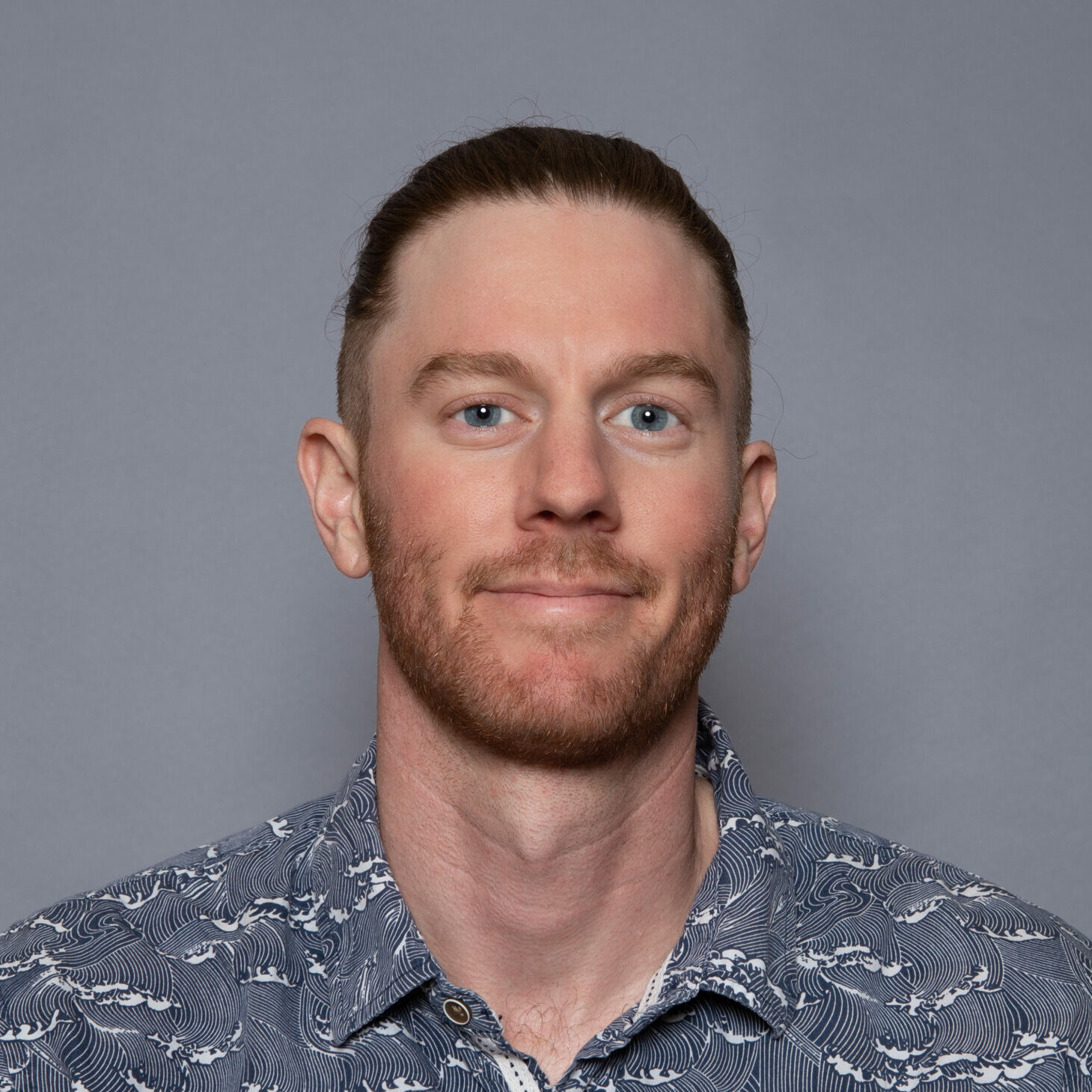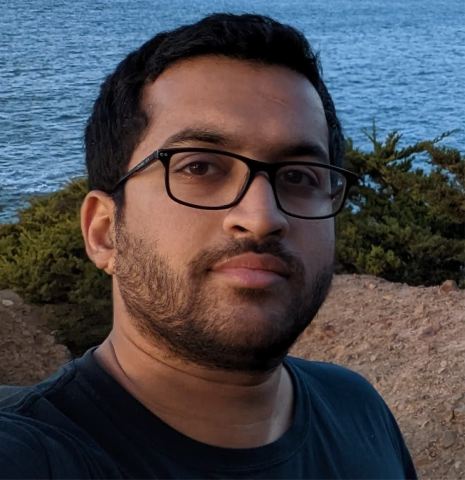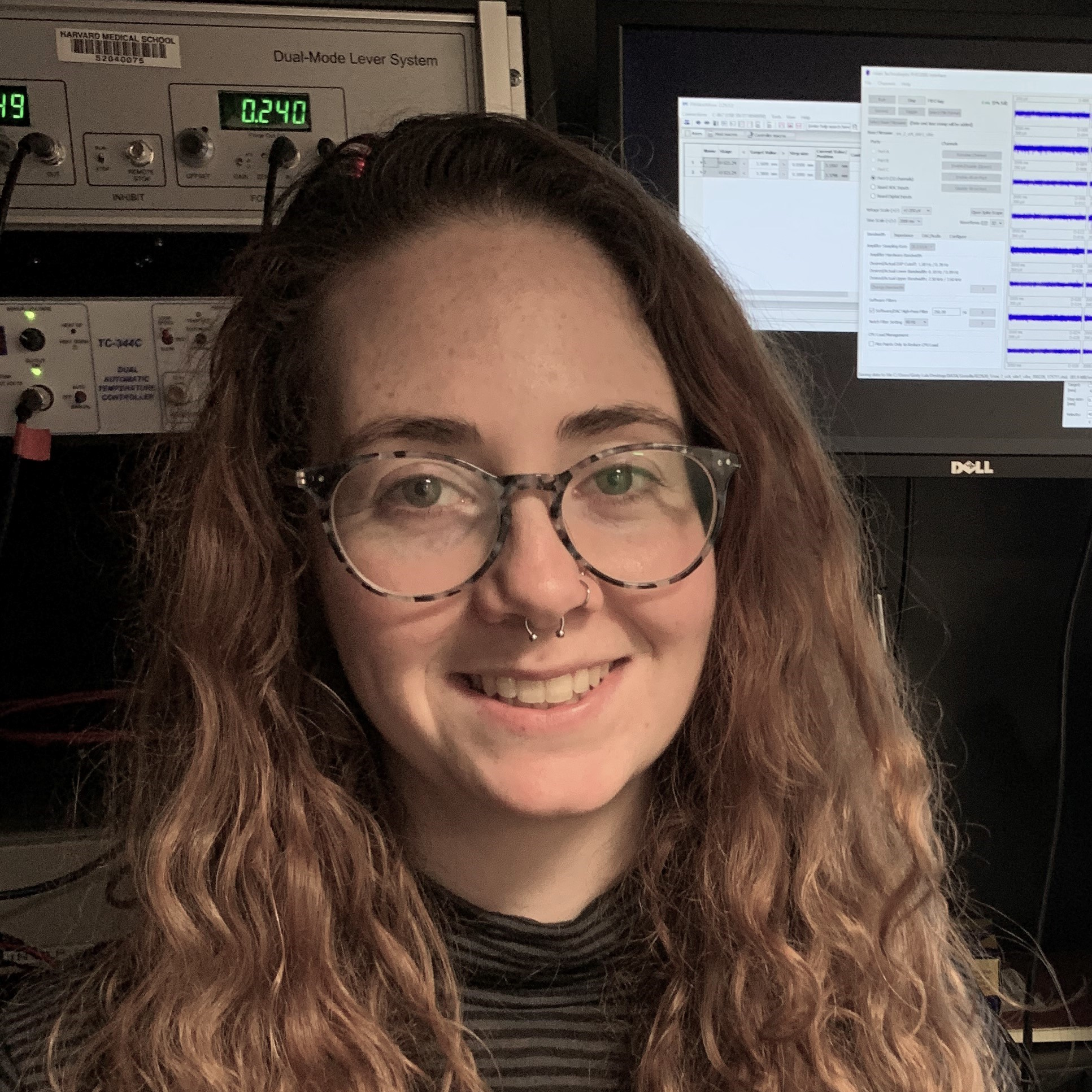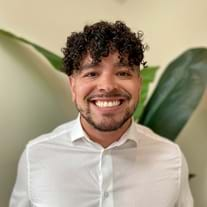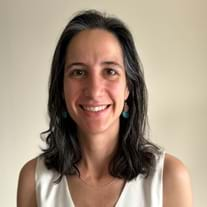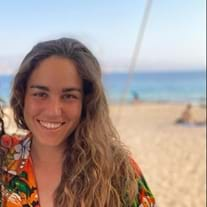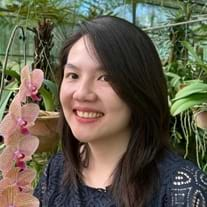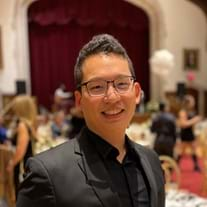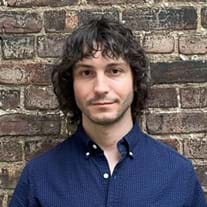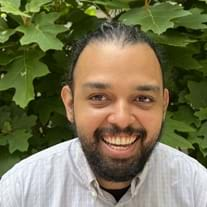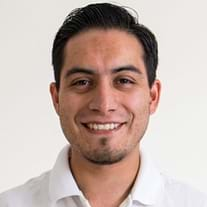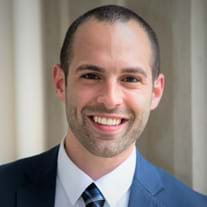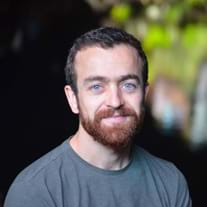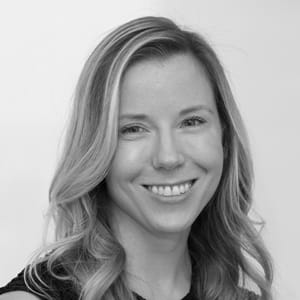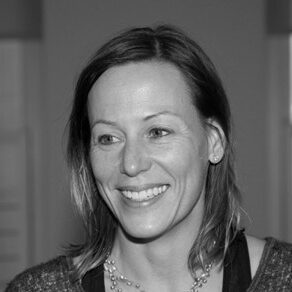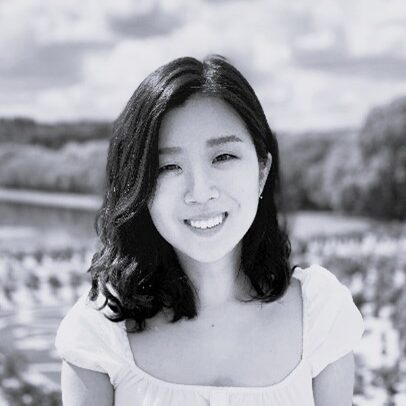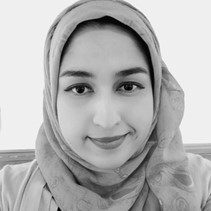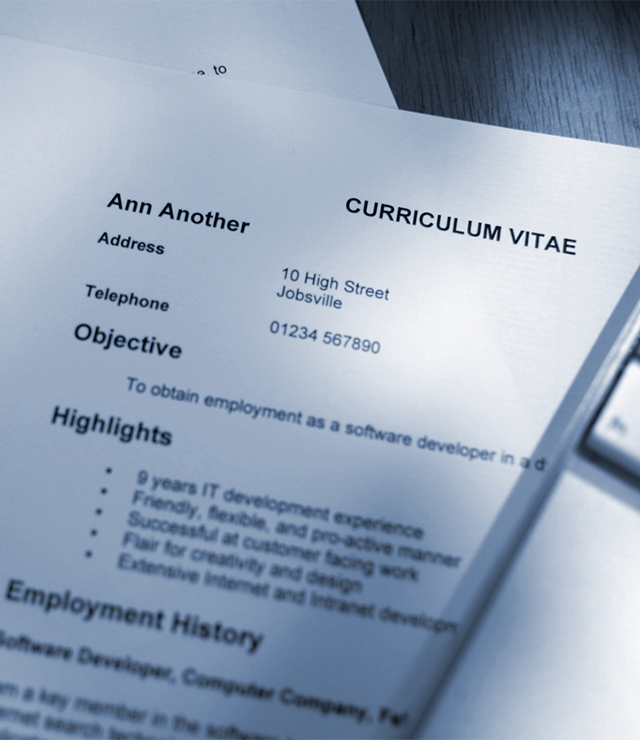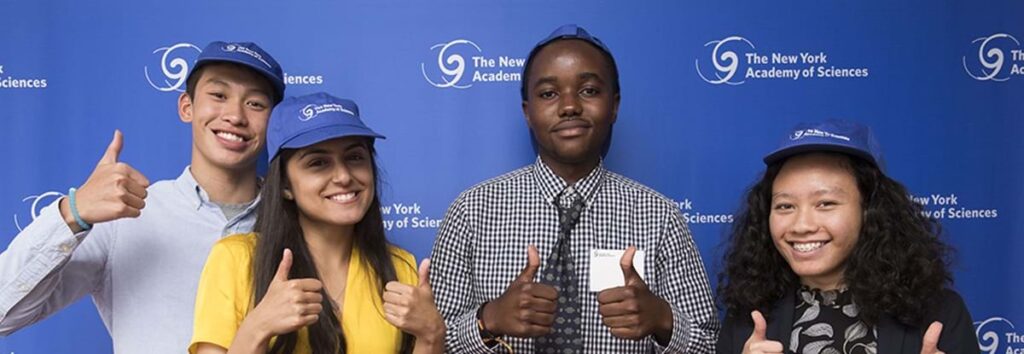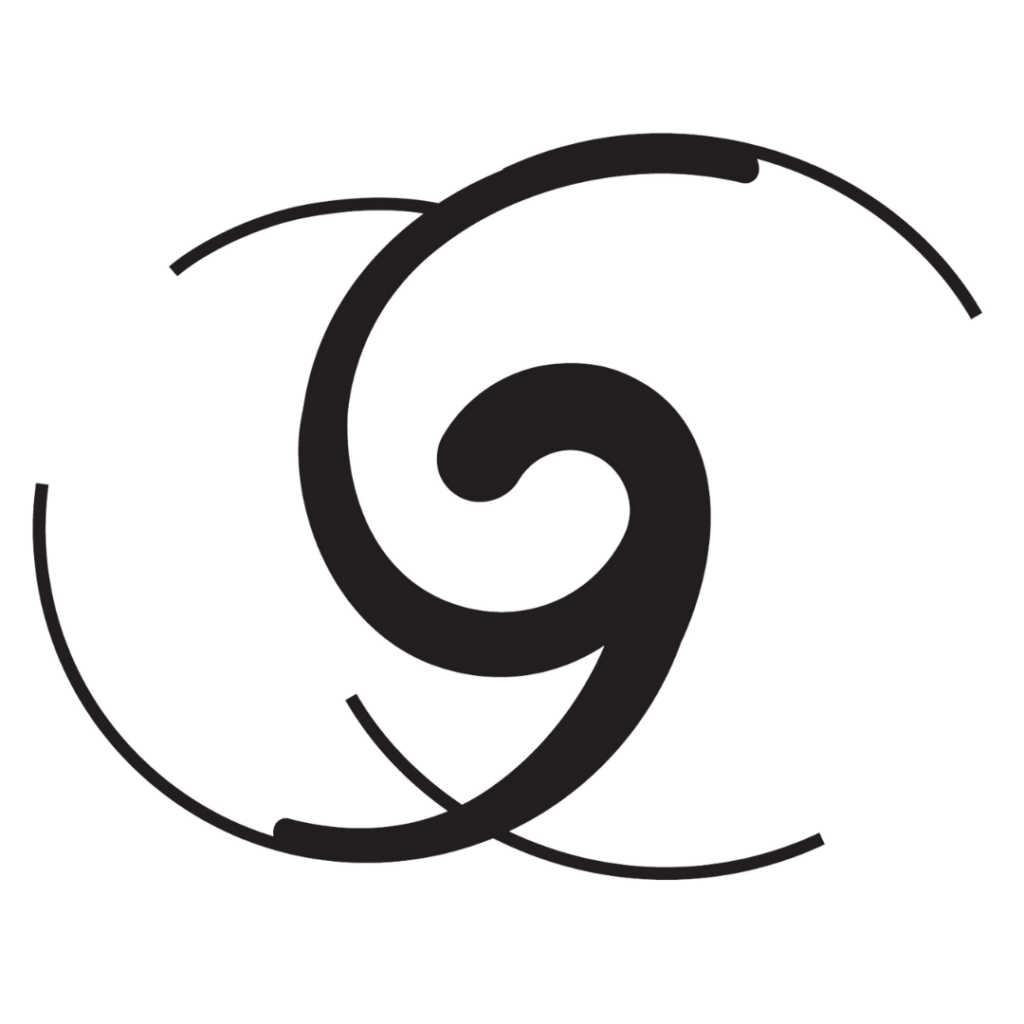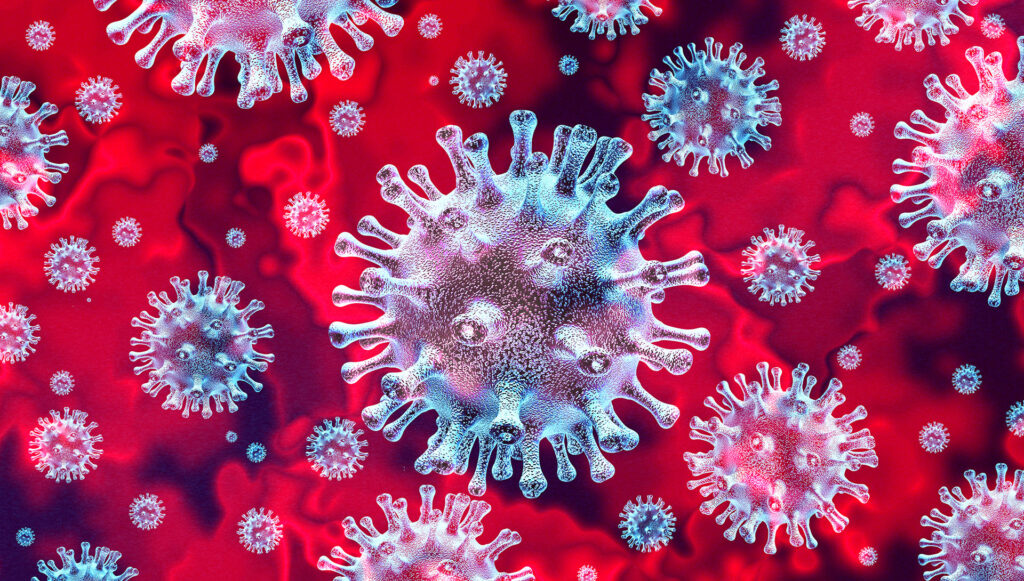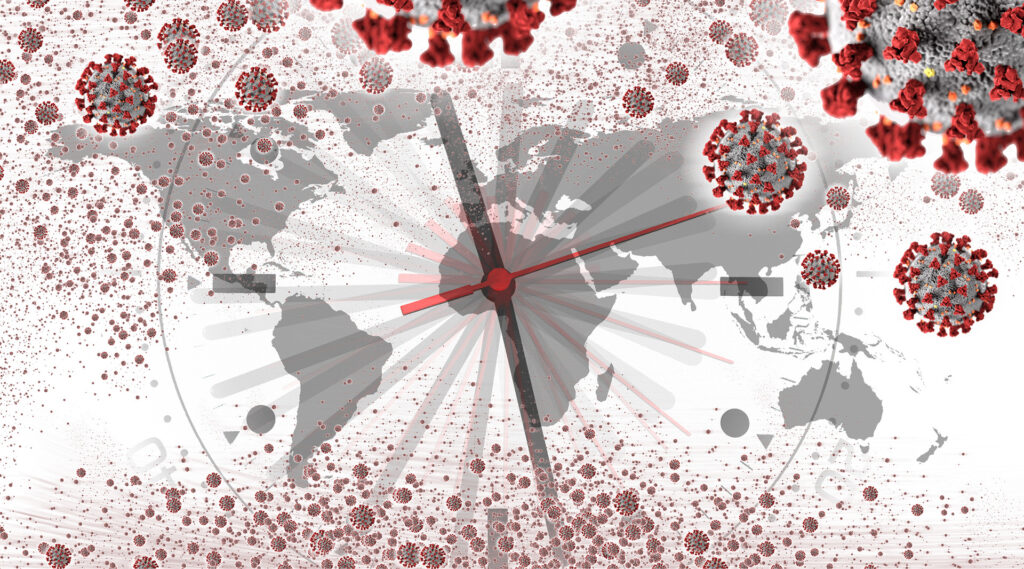The scientists in the Academy’s network view their job as blend of research and community outreach. Our scientists have a desire to directly engage the public to demystify science and foster science literacy, especially among young people and families. Therefore, our three signature programs — Afterschool STEM Mentoring, Scientist-in-Residence, and Family Science Nights — provide professional scientists with opportunities to do outreach that aligns with their interests as well as their professional time constraints.
There are several ways external organizations can become involved with our community outreach initiatives.
Download the New York Academy of Sciences STEM Education 10-Year Impact Report, 2024.
To partner with us to support our School & Community Engagement programs, contact education@nyas.org.
[{"id":28015,"link":"https:\/\/www.nyas.org\/ideas-insights\/blog\/putting-the-spotlight-on-nyc-innovation\/","name":"putting-the-spotlight-on-nyc-innovation","thumbnail":{"url":"https:\/\/www.nyas.org\/wp-content\/uploads\/2025\/06\/P1001702.png","alt":"Students hold up a test tube."},"title":"Putting the Spotlight on NYC Innovation","author":{"name":"The New York Academy of Sciences","link":"https:\/\/www.nyas.org\/author\/nickfetty\/"},"date":"Jun 25, 2025","dateGMT":"2025-06-25 15:37:13","modifiedDate":"2025-10-31 19:42:37","modifiedDateGMT":"2025-10-31 19:42:37","commentCount":"0","commentStatus":"closed","categories":{"coma":"<a href=\"https:\/\/www.nyas.org\/category\/education\/\" rel=\"category tag\">Education<\/a>, <a href=\"https:\/\/www.nyas.org\/category\/new-york-city\/\" rel=\"category tag\">New York City<\/a>","space":"<a href=\"https:\/\/www.nyas.org\/category\/education\/\" rel=\"category tag\">Education<\/a> <a href=\"https:\/\/www.nyas.org\/category\/new-york-city\/\" rel=\"category tag\">New York City<\/a>"},"taxonomies":{"blog-highlight":"<a href='https:\/\/www.nyas.org\/blog-highlight\/editor-choice\/' rel='blog-highlight'>Editor Choice<\/a>","blog-category":"<a href='https:\/\/www.nyas.org\/blog-category\/program-wrap-up\/' rel='blog-category'>Program Wrap-Up<\/a>","feature":"","program-category":"<a href='https:\/\/www.nyas.org\/program-category\/learning\/' rel='program-category'>Learning<\/a><a href='https:\/\/www.nyas.org\/program-category\/scientists-in-residence\/' rel='program-category'>Scientists in Residence<\/a>","scientific-theme":"<a href='https:\/\/www.nyas.org\/scientific-theme\/stem-pathways\/' rel='scientific-theme'>STEM Pathways<\/a>","speaker-name":""},"readTime":{"min":4,"sec":44},"status":"publish","excerpt":"The Scientist-in-Residence Student Showcase explores scientific innovations taking place in the city."},{"id":26462,"link":"https:\/\/www.nyas.org\/ideas-insights\/blog\/bringing-science-to-life-with-artificial-intelligence\/","name":"bringing-science-to-life-with-artificial-intelligence","thumbnail":{"url":"https:\/\/www.nyas.org\/wp-content\/uploads\/2025\/05\/AdobeStock_233520885.png","alt":"A boy wearing a VR headset, with a robotic hand in the foreground."},"title":"Bringing Science to Life with Artificial Intelligence","author":{"name":"The New York Academy of Sciences","link":"https:\/\/www.nyas.org\/author\/nickfetty\/"},"date":"May 14, 2025","dateGMT":"2025-05-14 14:55:34","modifiedDate":"2025-10-30 19:47:20","modifiedDateGMT":"2025-10-30 19:47:20","commentCount":"0","commentStatus":"closed","categories":{"coma":"<a href=\"https:\/\/www.nyas.org\/category\/ai\/\" rel=\"category tag\">Artificial Intelligence<\/a>, <a href=\"https:\/\/www.nyas.org\/category\/education\/\" rel=\"category tag\">Education<\/a>, <a href=\"https:\/\/www.nyas.org\/category\/new-york-city\/\" rel=\"category tag\">New York City<\/a>","space":"<a href=\"https:\/\/www.nyas.org\/category\/ai\/\" rel=\"category tag\">Artificial Intelligence<\/a> <a href=\"https:\/\/www.nyas.org\/category\/education\/\" rel=\"category tag\">Education<\/a> <a href=\"https:\/\/www.nyas.org\/category\/new-york-city\/\" rel=\"category tag\">New York City<\/a>"},"taxonomies":{"blog-highlight":"","blog-category":"<a href='https:\/\/www.nyas.org\/blog-category\/story-of-impact\/' rel='blog-category'>Story of Impact<\/a>","feature":"","program-category":"<a href='https:\/\/www.nyas.org\/program-category\/learning\/' rel='program-category'>Learning<\/a><a href='https:\/\/www.nyas.org\/program-category\/scientists-in-residence\/' rel='program-category'>Scientists in Residence<\/a>","scientific-theme":"<a href='https:\/\/www.nyas.org\/scientific-theme\/science-in-society\/' rel='scientific-theme'>Science in Society<\/a>","speaker-name":""},"readTime":{"min":2,"sec":49},"status":"publish","excerpt":"Learn how NYC teachers are using artificial intelligence to transform STEM education."},{"id":26098,"link":"https:\/\/www.nyas.org\/ideas-insights\/blog\/recognizing-the-stem-teacher-and-mentor-of-the-year\/","name":"recognizing-the-stem-teacher-and-mentor-of-the-year","thumbnail":{"url":"https:\/\/www.nyas.org\/wp-content\/uploads\/2025\/04\/Megan-and-Brittany-at-NYAS-Spring-Soiree-April-22-2025-1024x1024.jpeg","alt":"Two women pose with their awards trophies."},"title":"Recognizing the STEM Teacher and Mentor of the Year","author":{"name":"The New York Academy of Sciences","link":"https:\/\/www.nyas.org\/author\/nickfetty\/"},"date":"Apr 30, 2025","dateGMT":"2025-04-30 13:07:56","modifiedDate":"2025-10-31 19:34:43","modifiedDateGMT":"2025-10-31 19:34:43","commentCount":"0","commentStatus":"closed","categories":{"coma":"<a href=\"https:\/\/www.nyas.org\/category\/brooke-elliott\/\" rel=\"category tag\">Brooke Elliott<\/a>, <a href=\"https:\/\/www.nyas.org\/category\/education\/\" rel=\"category tag\">Education<\/a>","space":"<a href=\"https:\/\/www.nyas.org\/category\/brooke-elliott\/\" rel=\"category tag\">Brooke Elliott<\/a> <a href=\"https:\/\/www.nyas.org\/category\/education\/\" rel=\"category tag\">Education<\/a>"},"taxonomies":{"blog-highlight":"","blog-category":"<a href='https:\/\/www.nyas.org\/blog-category\/story-of-impact\/' rel='blog-category'>Story of Impact<\/a>","feature":"<a href='https:\/\/www.nyas.org\/feature\/award-winner\/' rel='feature'>Award Winner<\/a>","program-category":"<a href='https:\/\/www.nyas.org\/program-category\/awards\/' rel='program-category'>Awards<\/a><a href='https:\/\/www.nyas.org\/program-category\/learning\/' rel='program-category'>Learning<\/a><a href='https:\/\/www.nyas.org\/program-category\/scientists-in-residence\/' rel='program-category'>Scientists in Residence<\/a><a href='https:\/\/www.nyas.org\/program-category\/spring-soiree\/' rel='program-category'>Spring Soir\u00e9e<\/a>","scientific-theme":"<a href='https:\/\/www.nyas.org\/scientific-theme\/stem-pathways\/' rel='scientific-theme'>STEM Pathways<\/a>","speaker-name":""},"readTime":{"min":7,"sec":26},"status":"publish","excerpt":"This year\u2019s award-winning teacher-mentor duo has been inspiring young minds for three years.\u00a0"},{"id":2914,"link":"https:\/\/www.nyas.org\/ideas-insights\/blog\/the-case-for-mentoring-as-a-pathway-to-promote-student-interest-in-stem\/","name":"the-case-for-mentoring-as-a-pathway-to-promote-student-interest-in-stem","thumbnail":{"url":"https:\/\/www.nyas.org\/wp-content\/uploads\/2020\/03\/The-Innovators-of-Tomorrow-Are-Already-Collaborating-Today.png","alt":"A young woman examines a specimen under a microscope."},"title":"Good Mentors are Key to Student Interest in STEM","author":{"name":"The New York Academy of Sciences","link":"https:\/\/www.nyas.org\/author\/nyas_dev_admin\/"},"date":"May 1, 2020","dateGMT":"2020-05-01 12:35:51","modifiedDate":"2025-11-04 20:34:26","modifiedDateGMT":"2025-11-04 20:34:26","commentCount":"0","commentStatus":"closed","categories":{"coma":"<a href=\"https:\/\/www.nyas.org\/category\/education\/\" rel=\"category tag\">Education<\/a>","space":"<a href=\"https:\/\/www.nyas.org\/category\/education\/\" rel=\"category tag\">Education<\/a>"},"taxonomies":{"blog-highlight":"","blog-category":"<a href='https:\/\/www.nyas.org\/blog-category\/story-of-impact\/' rel='blog-category'>Story of Impact<\/a>","feature":"<a href='https:\/\/www.nyas.org\/feature\/n-a\/' rel='feature'>N\/A<\/a>","program-category":"<a href='https:\/\/www.nyas.org\/program-category\/scientists-in-residence\/' rel='program-category'>Scientists in Residence<\/a>","scientific-theme":"<a href='https:\/\/www.nyas.org\/scientific-theme\/stem-pathways\/' rel='scientific-theme'>STEM Pathways<\/a>","speaker-name":""},"readTime":{"min":3,"sec":18},"status":"publish","excerpt":"The Academy's Scientist-in-Residence initiative aims to jumpstart student interest in STEM."},{"id":26703,"link":"https:\/\/www.nyas.org\/ideas-insights\/blog\/science-state-from-new-york-city-to-syracuse\/","name":"science-state-from-new-york-city-to-syracuse","thumbnail":{"url":"https:\/\/www.nyas.org\/wp-content\/uploads\/2025\/05\/AdobeStock_180338926.png","alt":"A scientist examines a petri dish."},"title":"Science State: From New York City to Syracuse","author":{"name":"The New York Academy of Sciences","link":"https:\/\/www.nyas.org\/author\/nickfetty\/"},"date":"Jun 9, 2017","dateGMT":"2017-06-09 15:31:00","modifiedDate":"2025-11-06 21:27:59","modifiedDateGMT":"2025-11-06 21:27:59","commentCount":"0","commentStatus":"closed","categories":{"coma":"<a href=\"https:\/\/www.nyas.org\/category\/education\/\" rel=\"category tag\">Education<\/a>","space":"<a href=\"https:\/\/www.nyas.org\/category\/education\/\" rel=\"category tag\">Education<\/a>"},"taxonomies":{"blog-highlight":"","blog-category":"<a href='https:\/\/www.nyas.org\/blog-category\/story-of-impact\/' rel='blog-category'>Story of Impact<\/a>","feature":"<a href='https:\/\/www.nyas.org\/feature\/program-participant\/' rel='feature'>Program Participant<\/a>","program-category":"<a href='https:\/\/www.nyas.org\/program-category\/learning\/' rel='program-category'>Learning<\/a><a href='https:\/\/www.nyas.org\/program-category\/scientists-in-residence\/' rel='program-category'>Scientists in Residence<\/a>","scientific-theme":"<a href='https:\/\/www.nyas.org\/scientific-theme\/stem-pathways\/' rel='scientific-theme'>STEM Pathways<\/a>","speaker-name":""},"readTime":{"min":2,"sec":38},"status":"publish","excerpt":"The Academy's Scientist-in-Residence Program now extends beyond the bounds of NYC."},{"id":2618,"link":"https:\/\/www.nyas.org\/ideas-insights\/blog\/iamnyas-devika-varma\/","name":"iamnyas-devika-varma","thumbnail":{"url":"https:\/\/www.nyas.org\/wp-content\/uploads\/2023\/12\/IAmNYAS.png","alt":"A logo with the text #IAmNYAS"},"title":"Inspired by the Nonstop Thirst for More Knowledge","author":{"name":"The New York Academy of Sciences","link":"https:\/\/www.nyas.org\/author\/nyas_dev_admin\/"},"date":"May 1, 2016","dateGMT":"2016-05-01 11:43:00","modifiedDate":"2025-11-10 13:42:48","modifiedDateGMT":"2025-11-10 13:42:48","commentCount":"0","commentStatus":"closed","categories":{"coma":"<a href=\"https:\/\/www.nyas.org\/category\/medicine-and-healthcare\/\" rel=\"category tag\">Medicine and Healthcare<\/a>","space":"<a href=\"https:\/\/www.nyas.org\/category\/medicine-and-healthcare\/\" rel=\"category tag\">Medicine and Healthcare<\/a>"},"taxonomies":{"blog-highlight":"","blog-category":"<a href='https:\/\/www.nyas.org\/blog-category\/profile\/' rel='blog-category'>Profile<\/a>","feature":"<a href='https:\/\/www.nyas.org\/feature\/member\/' rel='feature'>Member<\/a>","program-category":"<a href='https:\/\/www.nyas.org\/program-category\/n-a\/' rel='program-category'>N\/A<\/a><a href='https:\/\/www.nyas.org\/program-category\/stem-city\/' rel='program-category'>STEM City<\/a>","scientific-theme":"<a href='https:\/\/www.nyas.org\/scientific-theme\/stem-pathways\/' rel='scientific-theme'>STEM Pathways<\/a>","speaker-name":""},"readTime":{"min":2,"sec":35},"status":"publish","excerpt":"Devika Varma's research focuses on developing novel, plant-based materials for intervertebral disc repair and regeneration."},{"id":9274,"link":"https:\/\/www.nyas.org\/ideas-insights\/blog\/exploring-stem-opportunities-in-afterschool-programs\/","name":"exploring-stem-opportunities-in-afterschool-programs","thumbnail":{"url":"https:\/\/www.nyas.org\/wp-content\/uploads\/2012\/10\/DSC_6815.png","alt":"A young student shares his research project."},"title":"The Need for Afterschool STEM Opportunities","author":{"name":"The New York Academy of Sciences","link":"https:\/\/www.nyas.org\/author\/nyas_dev_admin\/"},"date":"Oct 19, 2012","dateGMT":"2012-10-19 13:00:00","modifiedDate":"2025-10-30 19:48:45","modifiedDateGMT":"2025-10-30 19:48:45","commentCount":"0","commentStatus":"closed","categories":{"coma":"<a href=\"https:\/\/www.nyas.org\/category\/education\/\" rel=\"category tag\">Education<\/a>","space":"<a href=\"https:\/\/www.nyas.org\/category\/education\/\" rel=\"category tag\">Education<\/a>"},"taxonomies":{"blog-highlight":"","blog-category":"","feature":"","program-category":"<a href='https:\/\/www.nyas.org\/program-category\/learning\/' rel='program-category'>Learning<\/a><a href='https:\/\/www.nyas.org\/program-category\/scientists-in-residence\/' rel='program-category'>Scientists in Residence<\/a>","scientific-theme":"<a href='https:\/\/www.nyas.org\/scientific-theme\/science-in-society\/' rel='scientific-theme'>Science in Society<\/a>","speaker-name":""},"readTime":{"min":7,"sec":8},"status":"publish","excerpt":"Dr. Meghan Groome shares the success of the Academy\u2019s Afterschool STEM Mentoring Program."}]
